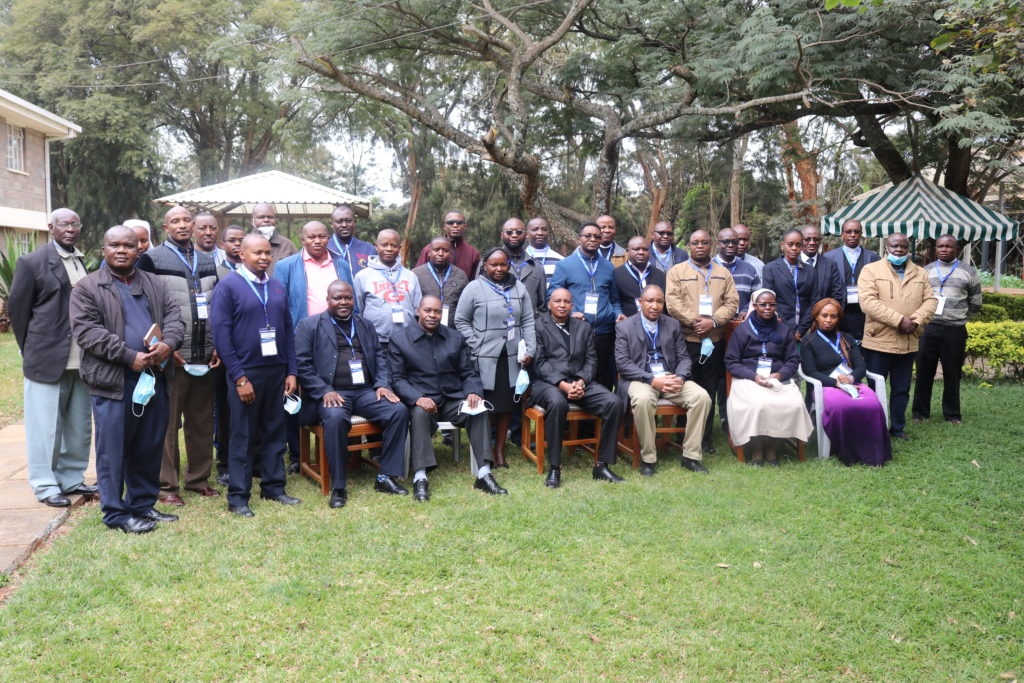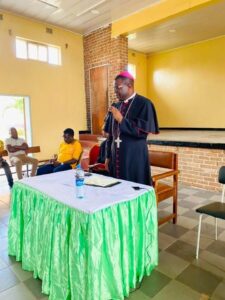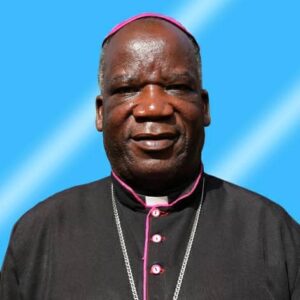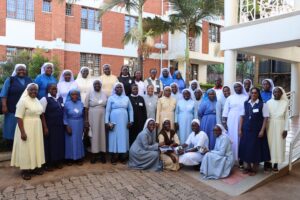AMECEA: Beneficiaries of Self-Reliance Training in Kenya to Implement New Ways of Sustenance in Dioceses

Finance administrators and Project Coordinators at JJ McCarthy, Nairobi
Sr. Jecinter Antoinette Okoth, FSSA
At a just concluded two weeks training themed “Strengthening Financial Self-reliance of Local Churches in Eastern Africa,” the beneficiaries drawn from various dioceses in Kenya including Religious men and women, clergy and lay faithful, have shared with AMECEA online the need of implementing new ways of sustaining Church ministries in their dioceses based on knowledge and skills acquired during the training.
“It’s high time we developed alternative ways for parish financial sustainability apart from offertory and tithes,” one of the participants Fr. Francis Mwangi the Diocesan chancellor of the Catholic Diocese of Ngong said in an interview on Wednesday, August 18, adding that the church also needs to “be updated on issues of labour laws and business ethics as She goes to serious business as a way of self-reliance.”
Fr. Mwangi who also serves in the communications department of the Diocese intends to share the new insights from the training with the Local Ordinary, the clergy, parish council members and the Finance administrator so that, together, they can device better ways on self-reliance.
Another participant, Fr. Shadrack Malo from Kisumu Archdiocese, described the training as an eye opener especially based on the knowledge gained on “how to handle different resources within the organization including human resource.”
The cleric who is the Communications Coordinator of Kisumu Archdiocese and doubles as the director of Radio Maria Kisumu appreciates the highlights of the training on “neglected areas that greatly affect dioceses including relationships with donors and the government.”
“The training has offered opportunity to learn best practices from other colleagues in terms of collaboration and networking,” Fr. Malo underscored and continued, “It was relevant for finance administrators and project coordinators who are very much involved in handling resources of the diocese and are at the core of the development and progress of various institutions.”
He suggests that the gained knowledge should be disseminated to the clergy at deanery levels so that the information can trickle down to parishes.
On her part the accountant of Apostolic vicariate of Isiolo Sr. Josyline Mwebia expressed her eagerness to share the skills and knowledge gained especially on resource mobilization, financial management, project planning and empowering the people, to ensure the Diocese achieves its goals.
“The diocese has been relying on donor funds for a long time right from our institutions, departments and parishes. This knowledge is of great importance since we are in the process of making our diocese self-sustaining,” Sr. Mwebia a member of the Institute of the Holy Trinity narrated.
The nun who works closely with the finance administrator and the Local Ordinary of Isiolo, consulting and advising on financial matters for smooth running of Diocesan activities parishes, departments and institutions, acknowledges that the training has empowered her to realize other relevant avenues that will be of great help to the Vicariate.
The two-week training coordinated by Association of Member Episcopal Conferences in Eastern Africa (AMECEA) from August 2-13, has been funded by Missio Aachen and facilitation was done by the Catholic University of Eastern Africa (CUEA).


